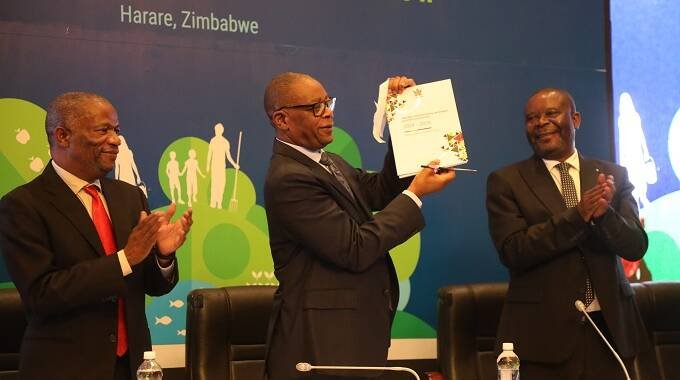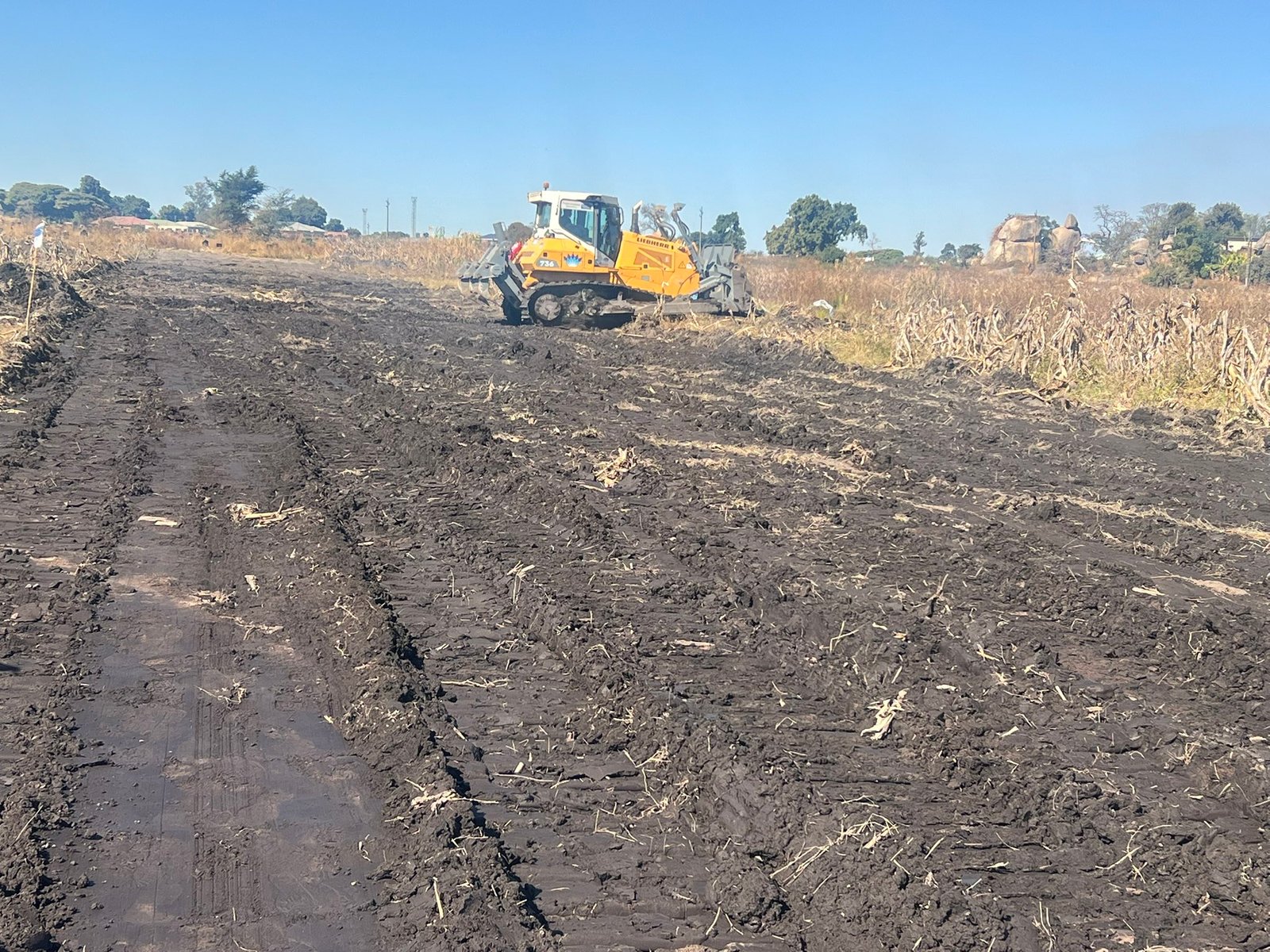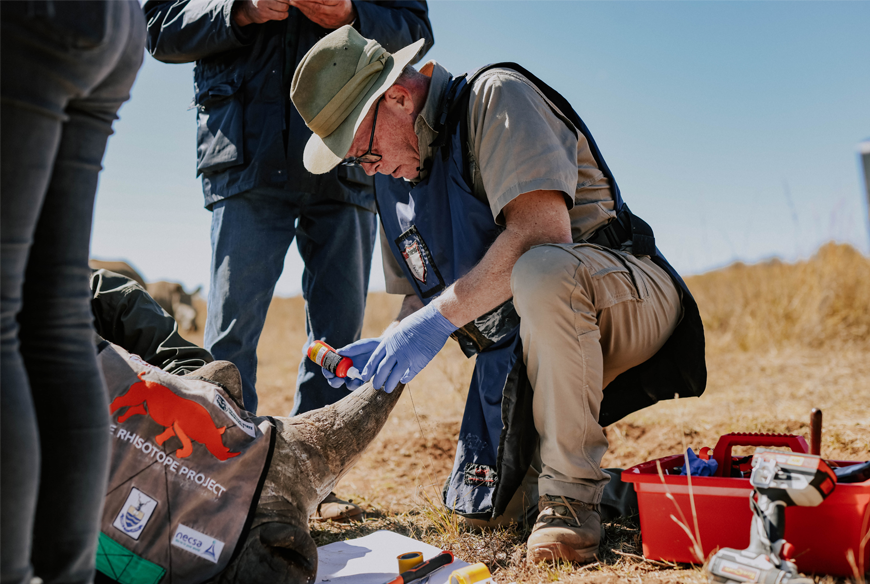Zimbabwe has received a significant boost in its fight against antimicrobial resistance (AMR) with a £2.5 million grant from the UK government’s Fleming Fund Phase 2.
The funding, announced at a launch event in Harare on Thursday, will enhance surveillance, strengthen regulations, and promote responsible antimicrobial use across human and animal health sectors.
The event was attended by representatives from various government ministries, UN agencies, and development partners. Dr. Patrice Talla, sub-regional coordinator for the Food and Agriculture Organisation of the United Nations emphasized the need for a “One Health” approach, highlighting the interconnectedness of human, animal, and environmental health in tackling AMR.
“This occasion marks the launch of the Antimicrobial Resistance National Action Plan (NAP 2.0) and the second Fleming Fund country grant. AMR is not merely a health issue; it impacts food production, rural livelihoods, and economic stability,” Dr. Talla added, stressing the integration of AMR into agrifood policies to ensure sustainable antimicrobial use in agriculture.
The funding will enhance Zimbabwe’s AMR surveillance systems and generate essential data to inform policy and interventions. Dr. Talla noted that the focus would be on translating data into actionable policy and embedding sustainable practices across the agrifood and health sectors. “This launch is a call to action,” he declared.
The UK government, through the Fleming Fund, has been collaborating with Zimbabwe since 2018 to implement programs to combat AMR. The United Kingdom Development Director and Deputy Head of Mission Dr Jo Abbot highlighted the UK’s commitment to global health security, including AMR, as part of its global health strategy.” The burden of AMR is growing worldwide, and this is as true for me coming from the UK as it is elsewhere. We are all concerned about the threat of AMR to our populations and our ability to stay safe,” Dr Jo Abbot said.
The WHO Representative to Zimbabwe, Dr Desta Tiruneh, through his representative Dr Pius Essandoh, stressed the urgent need to address the global crisis of AMR, which affects everyone regardless of socio-economic status.
“If left unaddressed, it is estimated that AMR could cause 10 million deaths per year globally by 2050, up from the current 700 000 deaths per year. This would exceed deaths from many other major causes and have devastating economic consequences,” he warned.
The launch of the second phase of the Fleming Fund project and the AMR National Action Plan 2.0 marks a significant milestone in Zimbabwe’s efforts to combat the growing threat of antimicrobial resistance. The new plan focuses on raising awareness, strengthening surveillance, and optimizing research, with a strong emphasis on the One Health approach.
Health and Child Care Minister Dr. Douglas Mombeshora underscored the necessity of collaboration in addressing AMR.
“This is a multi-sectoral issue, and we need everyone involved, from healthcare professionals to farmers, to ensure responsible antimicrobial use,” he said, emphasizing the importance of community education on the risks of misuse.
“If we do nothing, by 2050, AMR could claim 10 million lives annually and significantly impact global GDP. At home, the stakes are equally high, putting pressure on our healthcare system and farmers,” he warned.
Collaborative approach to tackle antimicrobial resistance across human, animal, and environmental sectors using a One Health approach
Zimbabwe has taken a significant step in its fight against antimicrobial resistance (AMR) with the launch of its new AMR National Action Plan. The plan, developed through a multi-sectoral approach, outlines the country’s strategic priorities and coordinated efforts to address this growing public health threat.
Speaking at the launch event, Dr. Agnes Mahomva, the Public Health Advisor in the Office of the President and Cabinet, emphasized the importance of the One Health initiative in Zimbabwe’s AMR efforts. “Effective implementation of One Health Initiatives requires breaking down silos and fostering inter-sectoral cooperation. This is why we have embarked on the development of a broader, national strategic plan on One Health, with AMR as one of the key priorities.”
The new AMR National Action Plan, which will run from 2024 to 2028, focuses on capacity building, resource mobilization, and multi-sectoral governance. It aims to establish a coordinated and inclusive approach that strengthens AMR surveillance, antimicrobial stewardship, infection prevention and control, and research through a One Health framework.
Strengthening Environmental Surveillance and Monitoring
A key focus of the second phase of the Fleming Fund’s support will be on expanding the country’s environmental surveillance and monitoring of AMR levels. Sithembiso Nyoni, the Minister of Environment, Climate and Wildlife emphasized the importance of this aspect:
“Until now, solutions to antimicrobial resistance have been primarily from a medical lens, but achieving success requires cutting off the risk of AMR from the sources, and this is where the environmental dimension comes in. The environment is a reservoir of antimicrobial resistant microbes and pathogens, and ensuring this reservoir does not receive or pass on these microbes is critical. “
The plan includes specific activities to expand environmental surveillance and monitoring of AMR levels. This will enable the country to implement targeted interventions and strategies to address environmental contamination.
Capacity Building and Collaborative Efforts
The first phase of the Fleming Fund’s support in Zimbabwe had already yielded significant results, including the upgrading of the fourteen laboratories and the successful training of the first cohort of fellows through the fellowship program.
“The capacity-building initiatives supported by the Fleming Fund have been instrumental in strengthening our ability to conduct advanced AMR testing and analysis. We are now poised to train the second cohort of fellows, further enhancing our technical expertise and ensuring the sustainability of our AMR surveillance efforts,” Dr. Pious Makaya, chief director of the Department of Veterinary Services, representing Agriculture Minister Dr. Anxious Masuka
The continued collaboration with the Fleming Fund, as well as other international partners such as the FAO, will be crucial in Zimbabwe’s efforts to tackle the complex challenge of antimicrobial resistance. By integrating human, animal, and environmental health, the country aims to protect the effectiveness of antimicrobials and ensure a healthier future for all.
“Together, through responsible antimicrobial use and unwavering collaboration, we will build a healthier, stronger Zimbabwe, leaving no one and no place behind,” asserted Dr. Christopher Pasi, Secretary for Health Services Commission.
The new AMR National Action Plan and the ongoing support from the Fleming Fund’s second phase represent a renewed commitment and collaborative approach to addressing the complex issue of antimicrobial resistance in Zimbabwe. By integrating human, animal, and environmental health, the country aims to protect the effectiveness of antimicrobials and ensure a healthier future for all.





